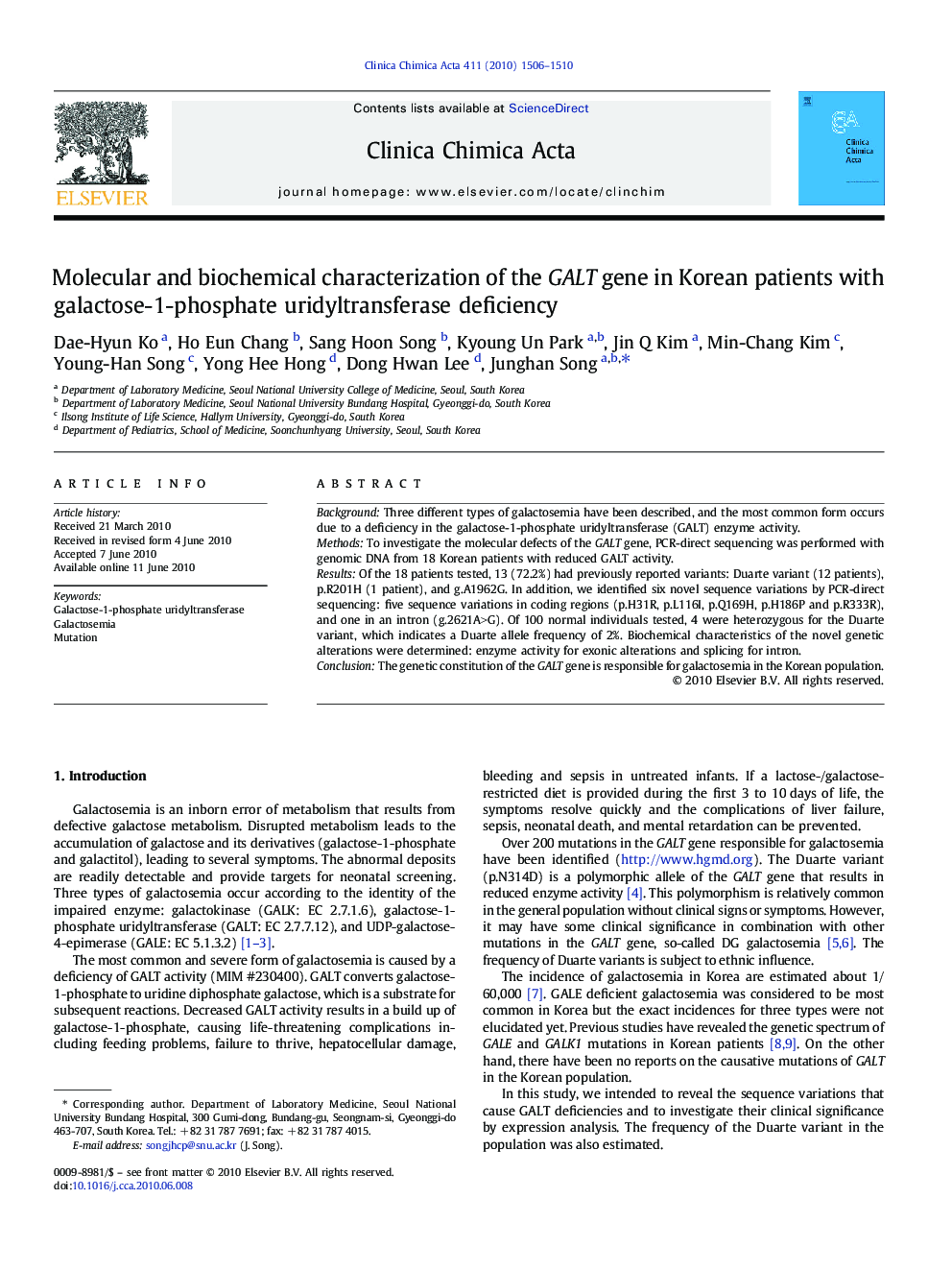| Article ID | Journal | Published Year | Pages | File Type |
|---|---|---|---|---|
| 1966929 | Clinica Chimica Acta | 2010 | 5 Pages |
BackgroundThree different types of galactosemia have been described, and the most common form occurs due to a deficiency in the galactose-1-phosphate uridyltransferase (GALT) enzyme activity.MethodsTo investigate the molecular defects of the GALT gene, PCR-direct sequencing was performed with genomic DNA from 18 Korean patients with reduced GALT activity.ResultsOf the 18 patients tested, 13 (72.2%) had previously reported variants: Duarte variant (12 patients), p.R201H (1 patient), and g.A1962G. In addition, we identified six novel sequence variations by PCR-direct sequencing: five sequence variations in coding regions (p.H31R, p.L116I, p.Q169H, p.H186P and p.R333R), and one in an intron (g.2621A>G). Of 100 normal individuals tested, 4 were heterozygous for the Duarte variant, which indicates a Duarte allele frequency of 2%. Biochemical characteristics of the novel genetic alterations were determined: enzyme activity for exonic alterations and splicing for intron.ConclusionThe genetic constitution of the GALT gene is responsible for galactosemia in the Korean population.
